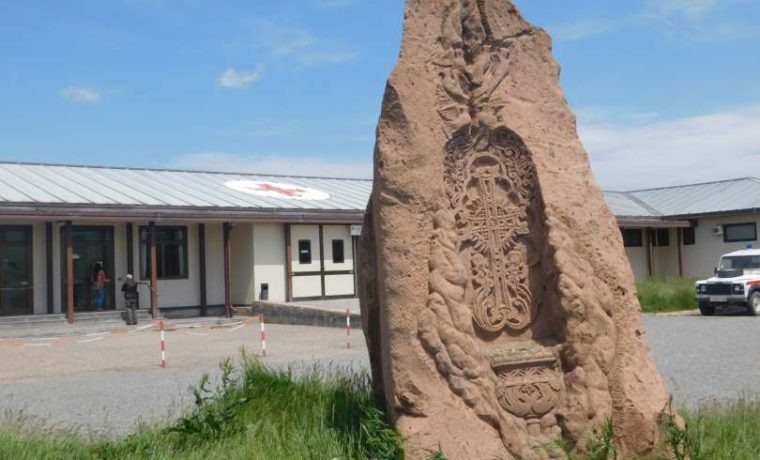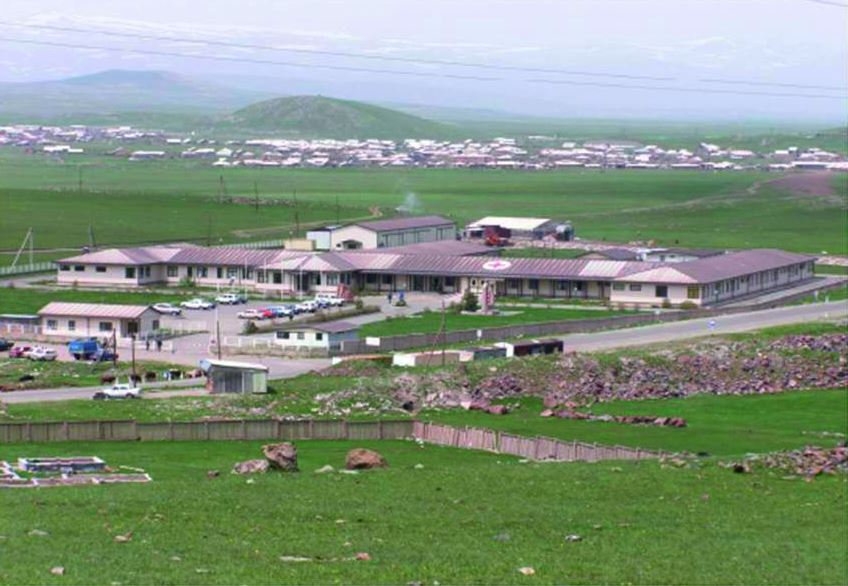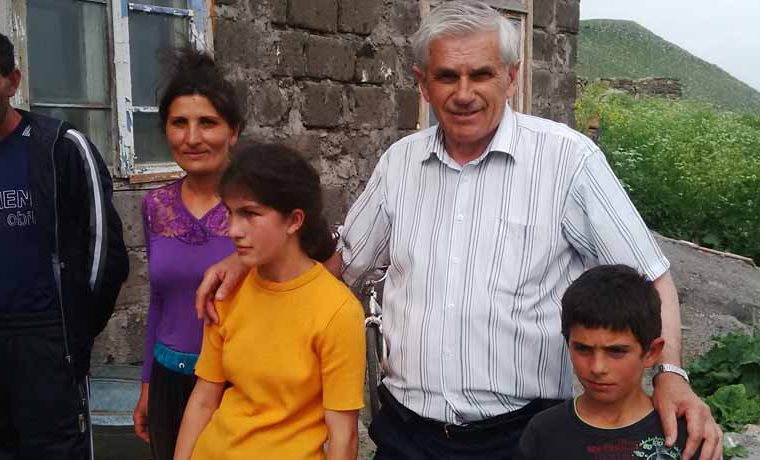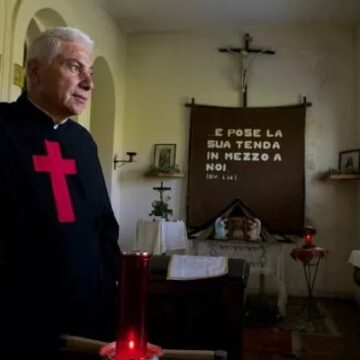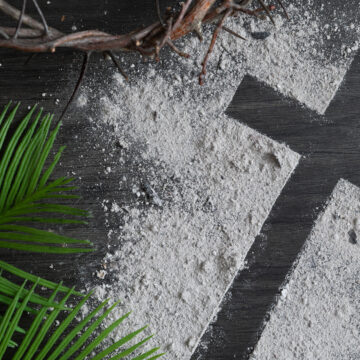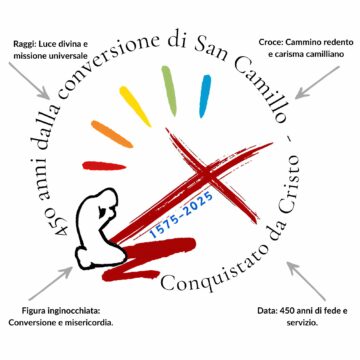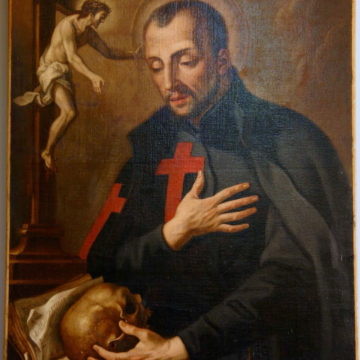n the world, 2020 was the year of Covid-19; in Armenia it was also the year of war, in addition to Covid-19…
The testimony of Father Mario Cuccarollo, a camilliano and the director of the Catholic ‘Redemptoris Mater’ Hospital of Ashotsk which yesterday received as a gift from Pope Francis medical goods to treat patients with Covid-19.
During this period the pandemic has changed us all: the ‘Redemptoris Mater’ Hospital, Armenia, Italy, Europe, the whole world. Very many of us have been struck at the level of our affections and all of us have had to modify our behaviour. For many of us this has served to make us understand that we must reassess out behaviour…before God and before our brothers and sisters. For those who have faith, the empty churches, the streets of Rome and St. Peter’s Square, walked through by a solitary and defenceless Pope Francis, overflow with a spiritual presence and so much prayer
The epidemic at the ‘Redemptoris Mater’ Hospital
The ‘Redemptoris Mater’ Hospital has also experienced the epidemic in a difficult way. The rules issued by the authorities have discouraged visits and admissions, unless they are urgent: the closing of the frontiers in the month of March of last year which is still applied has prevented patients from neighbouring Georgia from access to the services of the hospital. In addition, the violent return to hostilities in the Armenian enclave of Nagorno Karabak of 27 September of last year, together with the decree of the government to keep hospital beds available to take in people wounded in the war, has further penalised the activities of the hospital.
For some months we managed to keep the virus away but subsequently we capitulated. First, some cases were found amongst the patients who had been admitted; then the virus was discovered amongst the medical and paramedical personnel. In Armenia, unfortunately, a mentality was formed whereby Covid-19 was a disease that had to be concealed and which people had to be ashamed of having. For this reason, in various ways people tried to hide it or to falsify the results of a swab. Despite this, thanks to the precautions that were implemented, up to now we have been able to keep the hospital operating, differently from other health-care institutions in Armenia which have been temporarily closed.
Distance support
In parallel with the spread of the epidemic, work in the villages and in people’s homes was increased in order to administer therapies and to control the quarantine of Armenian citizens coming home from abroad who were suspected of having the disease. To this was added a monitoring of infection in schools, a task that would not have been up to us but which we were asked to take on, in addition to the task of controlling the nearby frontier with Georgia, with rapid tests for those who passed across it.
Despite everything, amongst the many consequences of Covid-19 the hospital has strengthened its ability to provide care. A new digital x-ray system and a new system for ear, nose and throat operations have come into operation. In addition, the equipping of a new intensive care room is well advanced with two beds, thanks to the donations of generous benefactors.
Another activity that has suffered a great deal during this difficult period has been direct care for families in need and the management of distance support. Because of the safety needs of the personnel of the hospital and the author of this text, we have been forced to maintain ‘social distancing’ from families and not enter their homes. However, help has always reached its destination through the support of our women nurses in the villages.
During last July and August, always respecting the rules set in place to control the epidemic, we were able to distribute clothes and basic necessities, which had previously arrived from Italy, to about 650 families.
The fallen in Ashotsk
And then there was the war! This new conflict, which was geographically distant (the hospital is in the north-east of Armenia but the war was fought in the south-east), made its consequences felt in a heavy way: the imposition of martial law; the departure of young men and adults to the front. The absence of those who had already left previously to do their compulsory military service (in Armenia this lasts two years) involved a majority of the families of Ashotsk and its surrounding areas. Five employees of the hospital were also called up to go to the front, in particular drivers.
Only an initiative by the author of this text with the governor of the region of Shirak broke the chain of call-ups of members of the personnel of the hospital as this would have seriously called into question the care it could provide.
What creates the greatest sadness is that for some time the daily departures have been accompanied by almost daily ‘returns’ of the fallen. As of today, in Ashotsk alone thirteen graves of young men have been opened and closed. Some of these young men were members of families that were helped by distance support.
There come to mind the words of the father of one of these young men when he was in front of his son’s coffin: “Father Mario, I brought him up…to no purpose”. Before God it is not like that, I am certain of this, but for a father at that moment…
Covid-19 and war in a place where everyone is related or friends, where the mourning of a family is a mourning for all the families…create a mix of consequences that are difficult to predict. How can we control the infection with social distancing and facemasks at funerals of young men who died at the front? Reason gives way to hopelessness. It is also arduous to manage a hospital that receives most of its work force from Ashotsk and its neighbouring areas.
Since March of last year, because of Covid-19, at the ‘Redemptoris Mater’ Hospital we have not heard the noise of aeroplanes flying to Yerevan. However, the flights of Guardian Angels to protect the hospital have intensified.
Mario Cuccarollo, M.I
Pope’s gift to Armenia to fight pandemic
The blessing of the health-care equipment given by Pope Francis took place on 26 April 2021 at the ordinariate of the Armenian Catholics in Kanakar, Armenia. The Supreme Pontiff had sent to our country medical equipment for the treatment of patients with Covid-19.
In addition to the Catholic community of Yerevan, there were also present the Apostolic Nuncio, Monsignor José A. Bettencourt, and Father Mario Cuccarollo, the director of the Catholic ‘Redemptoris Mater’ Hospital of Ashotsk, which in the year 2020 had already received some ventilators, a gift of the Caritas organisations of Georgia and Armenia. This health-care institution is managed by the #Camillian Fathers who for over twenty-five years have cared for patients in this region of the Southern Caucuses…offering care free of charge to those who need it.
To Armenia the gift of the Pope to counter the pandemic – Vatican News



